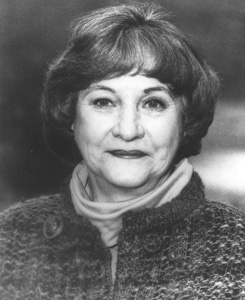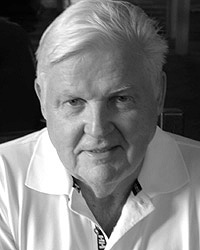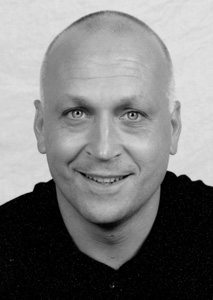|
|
Honorary Degrees to Recognize Distinguished Careers |

The university this year will confer five honorary degrees during two ceremonies May 23 at Homewood; a sixth was awarded on May 19 in China.
During the morning's universitywide commencement, the degree of Doctor of Humane Letters, honoris causa, will be bestowed upon Purnell Choppin, former president of the Howard Hughes Medical Institute; Ranice Crosby, director emerita of the Department of Art as Applied Medicine in the School of Medicine; and Robert Mundell, recipient of the 1999 Nobel Memorial Prize in Economic Science and a longtime teacher at the university's Bologna Center.
During the afternoon undergraduate ceremonies for Arts and Sciences and Engineering, honorary degrees will be conferred upon legendary baseball player Cal Ripken and news broadcaster Tom Brokaw, who will give the commencement address.
Jiang Shusheng, president of Nanjing University, received an honorary degree in May 19 ceremonies in China.
Following are the citations.
 Tom Brokaw
Tom Brokaw
Citation to be read by Ilene Busch-Vishniac, dean of the Whiting School of Engineering:
Both an ending and a beginning, commencement can make the most grounded graduate feel cast adrift. So it is comforting that you once said you didn't always know, even in college, what you wanted to be when you grew up.
Eventually, you did decide, and we are all better for your choice. Over a distinguished career of more than 40 years, you have become the nation's professor of current events, transforming American living rooms into your classroom every evening at the dinner hour.
You have been delivering the news, both good and bad, as anchor of NBC Nightly News since most of today's graduates were toddlers. When the Berlin Wall fell, you were the only anchor to show them the end of the Cold War on live television. More than a decade later, you were there in the hours after the World Trade Center fell, when our graduates' world again was changed forever.
Your special reports have been recognized with broadcasting's most prestigious honors, including the Alfred I. DuPont and George Foster Peabody awards. Recently, you have won acclaim in another medium, for your book The Greatest Generation. In these uncertain times, our young people would do well to heed that stirring account of their grandparents' impact on history.
Thomas John Brokaw, statesman of broadcast journalism, in recognition of all you have taught today's graduates about the world they now enter and will someday lead, The Johns Hopkins University is proud to confer upon you the degree of Doctor of Humane Letters, honoris causa.
 Purnell W.
Choppin
Purnell W.
Choppin
Citation to be read by Richard E. McCarty, the James B. Knapp Dean of the Krieger School of Arts and Sciences:
When an unexpected telephone call came in 1985, you had already carved out a stellar career as a medical researcher and administrator during 28 years at the Rockefeller University. The caller asked if you were interested in a new post as vice president and chief scientific officer at the Howard Hughes Medical Institute. Seeing an opportunity to influence biomedical research on a broad scale, you accepted the challenge.

|
| Purnell Choppin |
In 1987, you were elevated to president of the institute, one of the nation's most influential privately held biomedical research organizations. Your 13-year tenure was marked by your thoughtful, yet tenacious, approach to tough issues; your strong belief in building consensus; and your fairness, intellectual honesty and integrity. Under your careful leadership, the institute greatly accelerated its support for biomedical research, new laboratories and science education. The roster of Howard Hughes Medical Institute investigators rose from 96 researchers to 330 at more than 70 institutions.
The Johns Hopkins University has been one of the chief beneficiaries of the institute's support. Currently, 14 Johns Hopkins scientists are Howard Hughes investigators, enabling them to conduct cutting-edge medical research to understand and develop treatments for cancer and other important disorders. In recent years, the institute has also generously supported Johns Hopkins undergraduate education in the biological sciences.
Purnell W. Choppin, for your distinguished philanthropic leadership and outstanding contributions to medical research and education, The Johns Hopkins University is proud to confer upon you the degree of Doctor of Humane Letters, honoris causa.
 Ranice Winifred
Crosby
Ranice Winifred
Crosby
Citation to be read by Edward D. Miller, the Frances Watt Baker, M.D., and Lenox D. Baker, M.D. Dean of the Medical Faculty and CEO of Johns Hopkins Medicine:
The pioneering Department of Art as Applied to Medicine at Johns Hopkins has had only four directors. For 40 of its 91 years, that director was a venerated teacher and extraordinary artist named Ranice Winifred Crosby.

|
| Ranice Crosby |
You were just 27, three years into your career, when the dean, Alan Chesney, asked you to lead Art as Applied to Medicine. Over the decades that followed, you have been a guiding force in the department and an inspiration for the entire profession of medical illustration.
You ensured the department's future by establishing its first accredited graduate degree program in 1958. You kept alive the legacy of its legendary founder, Max Brodel, co-authoring his biography. You established an archive featuring his work and that of other pioneers.
An excellent artist from the first, you have pushed to advance your field not only in artistic proficiency but also in its value as a scholastic complement to the medical sciences. In gratitude, the Association of Medical Illustrators, which you helped create and led for many years, gave you its Lifetime Achievement Award.
Today, as director emerita of the department, you are serving under your eighth medical school dean and concluding your 59th year as a teacher. You have enhanced immeasurably the careers of hundreds of your students and colleagues.
Ranice Winifred Crosby, for your enthusiastic, lifelong dedication to both the past and the future of medical illustration, The Johns Hopkins University is proud to confer upon you the degree of Doctor of Humane Letters, honoris causa.
 Robert
Mundell
Robert
Mundell
Citation to be read by Stephen Szabo, interim dean of the Paul H. Nitze School of Advanced International Studies:
Your powerful theoretical work in international economics has had direct and measurable impact in the real world. You laid the groundwork for what ultimately would become the common currency of Europe, the euro. You were a pioneer in increasing our understanding of monetary and fiscal policy mix; inflation, interest and growth; and a monetary approach to the balance of payments. In awarding you the 1999 Nobel Memorial Prize in Economic Science, the Royal Swedish Academy said that your work had such far-reaching and lasting impact because it "combines formal--but still accessible--analysis, intuitive interpretation and results with immediate policy application."

|
| Robert Mundell |
In a distinguished academic career, one of your earliest positions was at the Johns Hopkins Bologna Center between 1959 and 1961. We are proud that you returned there as visiting AGIP Professor of Economics in 1997, 1998 and 2000. You also have served on the staff of the International Monetary Fund and as an adviser to the IMF, the World Bank, the United Nations, the Federal Reserve and the European Commission, among other important institutions.
Robert Mundell, in recognition of your immense and lasting contributions to the theory and practice of economics, The Johns Hopkins University is proud to confer upon you the degree of Doctor of Humane Letters, honoris causa.
 Cal Ripken
Jr.
Cal Ripken
Jr.
Citation to be read by Richard E. McCarty, the James B. Knapp Dean of the Krieger School of Arts and Sciences:
Orioles fans have seen ballplayers come and go. But they have known only one Iron Man. In your 23-year career, you became one of only seven players ever to record 3,000 hits and 400 home runs (and who knows how many glasses of milk?). You played in 2,632 consecutive games, an astonishing, record-smashing example of your dedication to the game, your teammates, the fans and the Oriole way.

|
| Cal Ripken |
At 6 feet 4 inches tall, you redefined the position of shortstop. And you stand tall in the community as well. You and your family recently created the Cal Ripken Sr. Foundation, dedicated to teaching baseball to underprivileged children and educating young people about the dangers of tobacco. To ensure youth baseball always has a home, you are building a family-oriented complex in your hometown, Aberdeen, Md., including six youth-sized stadiums for the more than 600,000 children playing in Cal Ripken Baseball leagues across the world.
Those who have never turned a double play also benefit from your generosity. The Kelly and Cal Ripken Jr. Foundation supports, among others, the Baltimore Reads Ripken Learning Center and the Kelly G. Ripken Program at Johns Hopkins Hospital, which offers thyroid education and patient care. And after breaking Lou Gehrig's "unbreakable" consecutive games record in 1995, you and the Orioles established the Johns Hopkins ALS Cal Ripken Jr./Lou Gehrig Fund to find a cure for the neuromuscular disease that took Gehrig's life.
Cal Ripken Jr., you are the Iron Man both on and off the field, in Baltimore and around the world, and The Johns Hopkins University is proud to confer upon you the degree of Doctor of Humane Letters, honoris causa.
 Jiang
Shusheng
Jiang
Shusheng
Citation read by Daniel B. Wright, director of the Hopkins-Nanjing Center for Chinese and American Studies, and Chih-Yung Chien, a professor of physics and astronomy in the Krieger School of Arts and Sciences:
Universities create knowledge for the world. They convey that knowledge to the next generation. They lay the foundation for national development. They encourage the realization of human potential.
In all these roles, universities have been crucial to the historic advances of the Chinese people. And in all these roles, Nanjing University has excelled. Its success is due in no small measure to your contributions as student, pre-eminent scholar and scientist, and academic leader over more than 40 of the university's 100 years.
As a scientist focusing on condensed matter physics, you have done groundbreaking work on dynamic diffraction of X-rays in crystals. You have made your university one of China's leaders in the field, earning numerous scientific awards.
As department chair, vice president and now as the very model of a scholar-president, you have promoted excellence across all disciplines and led Nanjing University into the ranks of the greatest institutions in China. You have encouraged a renewal of China's rich intellectual traditions. As a member of the National People's Congress, you have participated in reform of higher education and other aspects of the nation's life. You have done all of this with characteristic diligence, true humility, good humor and uncommon grace.
You also are strongly committed to a visionary partnership between your university and ours. The fruit of that partnership, the Hopkins-Nanjing Center for Chinese and American Studies, prepares those who will shape the future of U.S.-China relations. It has begun to foster new and innovative research into that important relationship. Your leadership and support make possible the center's vital work.
Jiang Shusheng, in recognition of your lasting impact on science, society and the great university whose 100th anniversary we now celebrate, The Johns Hopkins University is proud to confer upon you the degree of Doctor of Humane Letters, honoris causa.
| GO TO MAY 20, 2002 TABLE OF CONTENTS. |
| GO TO THE GAZETTE HOME PAGE. |